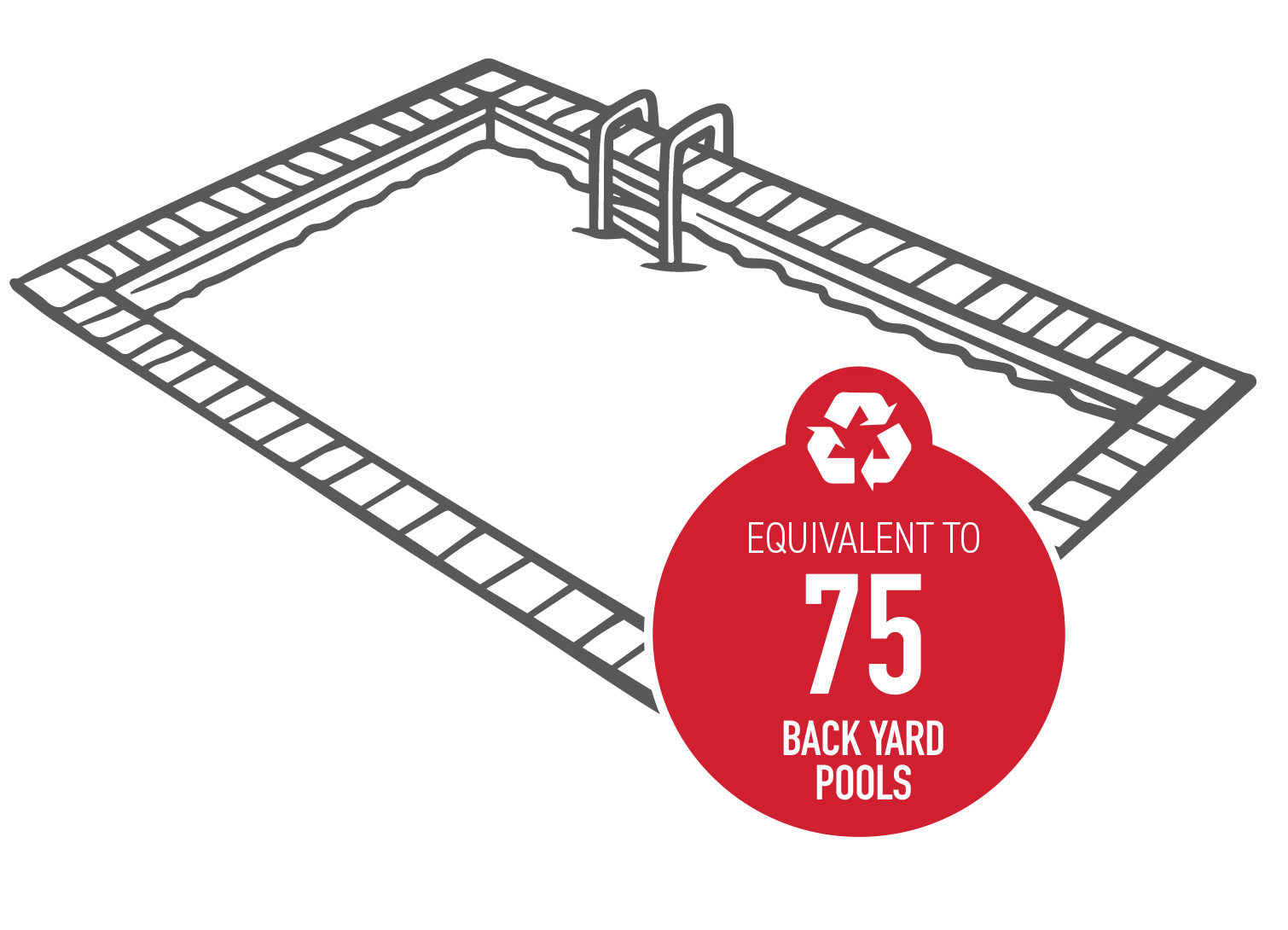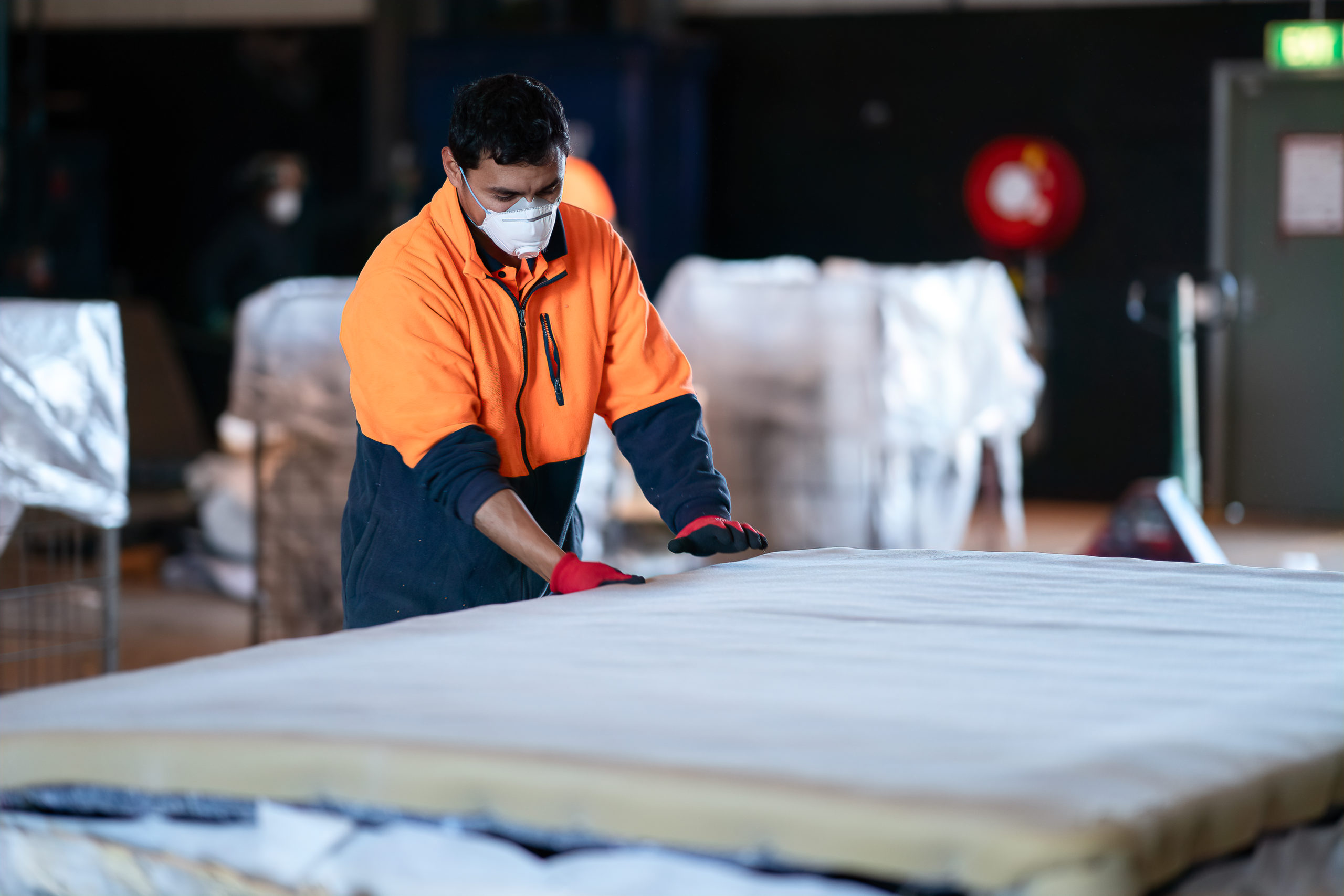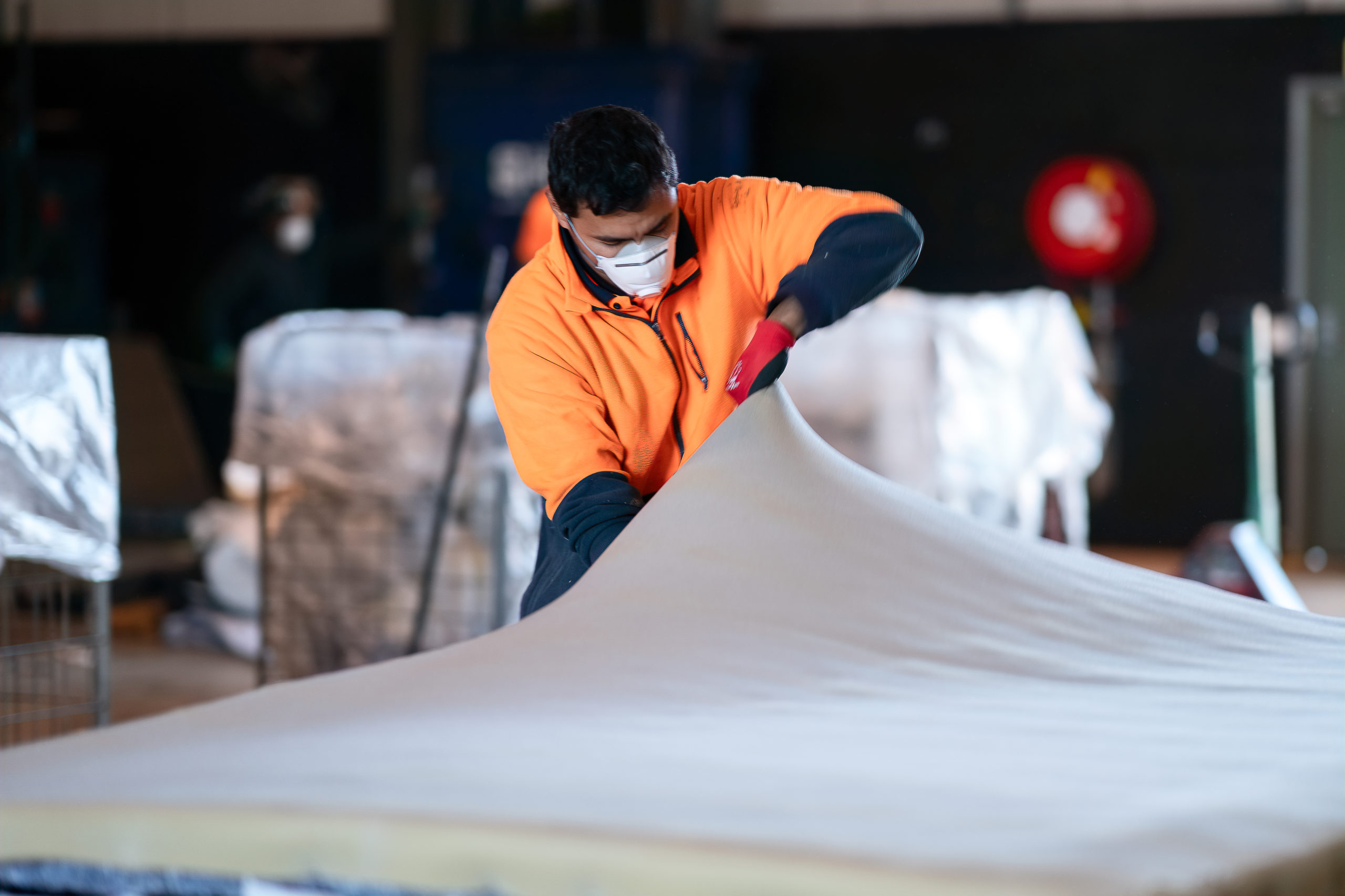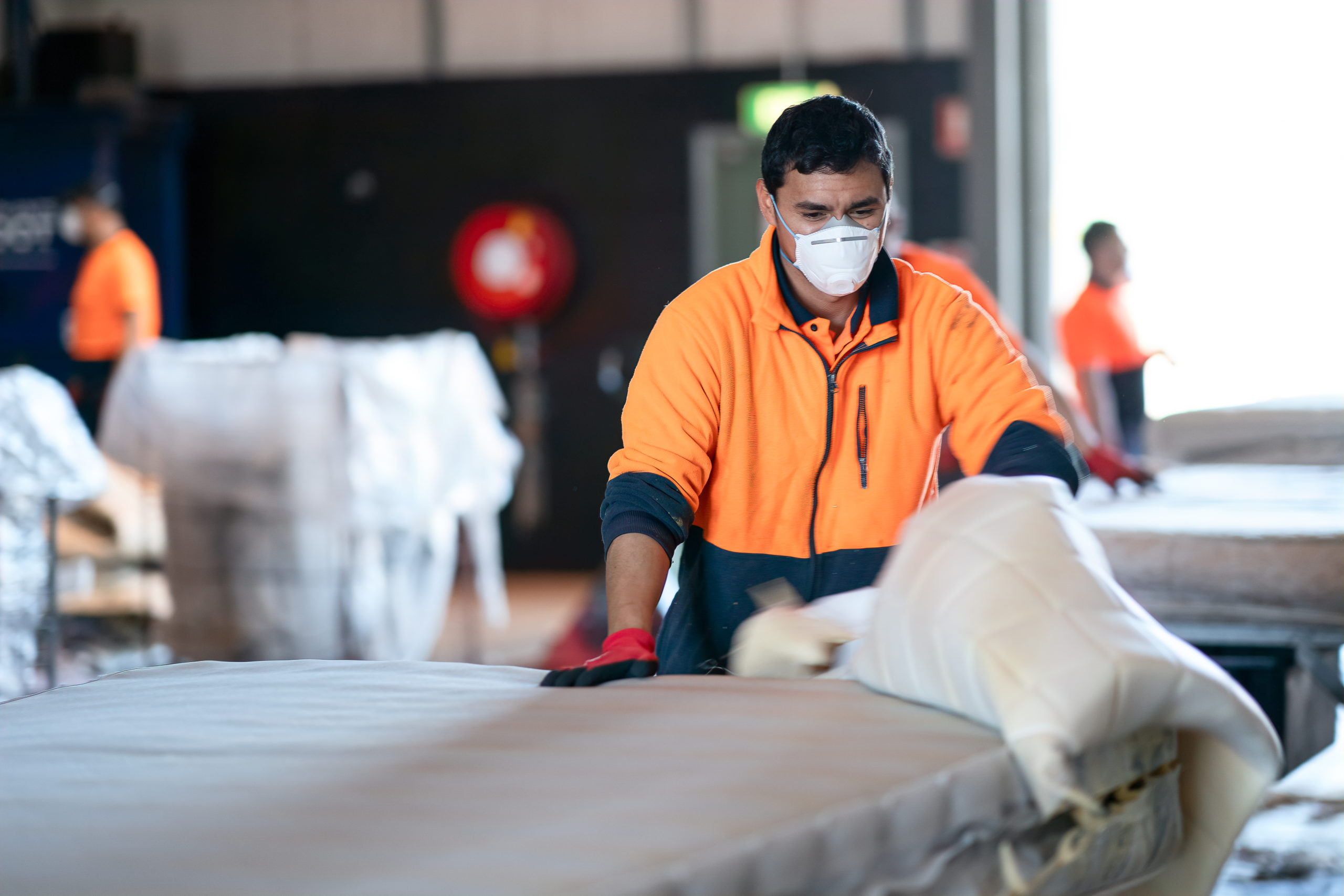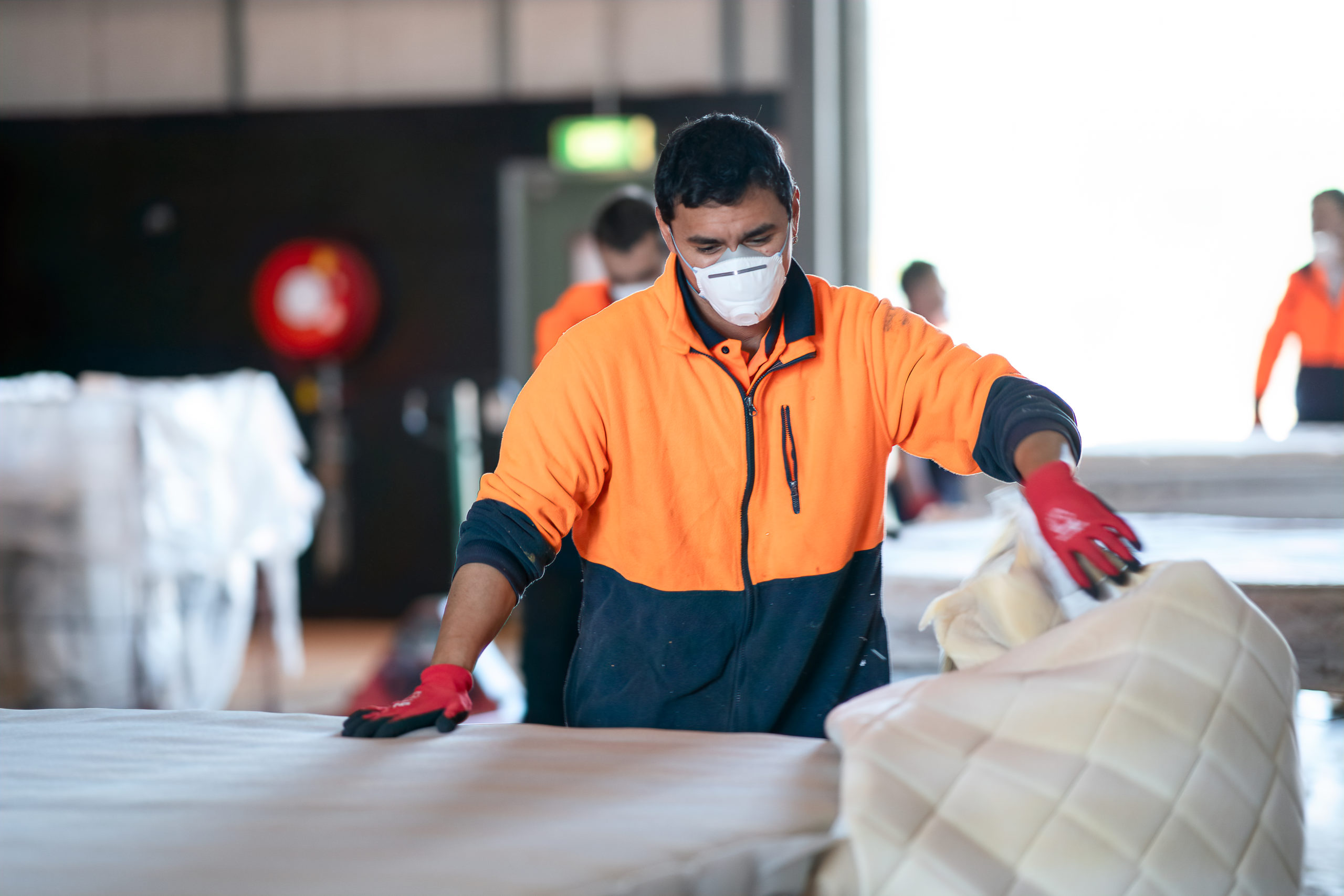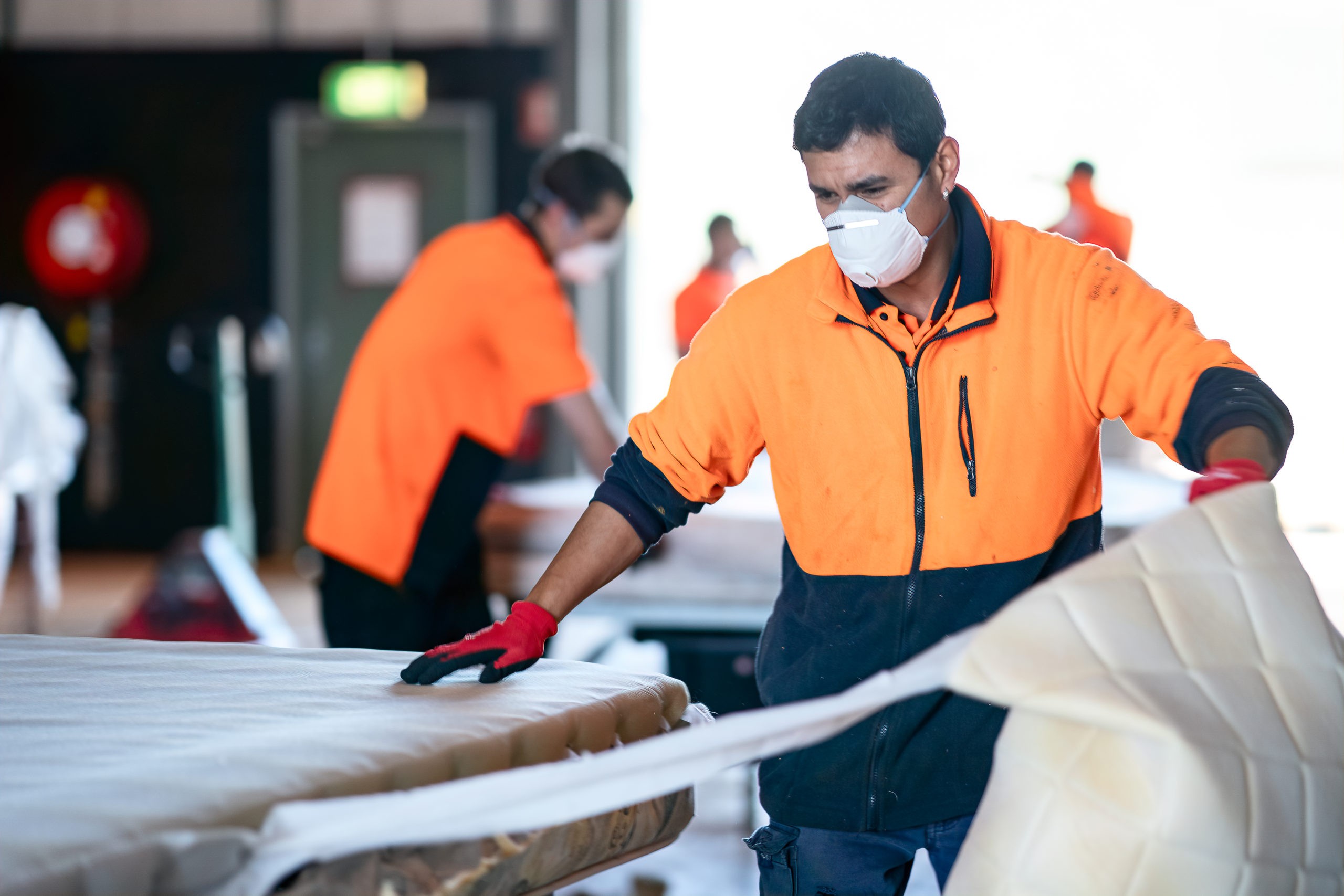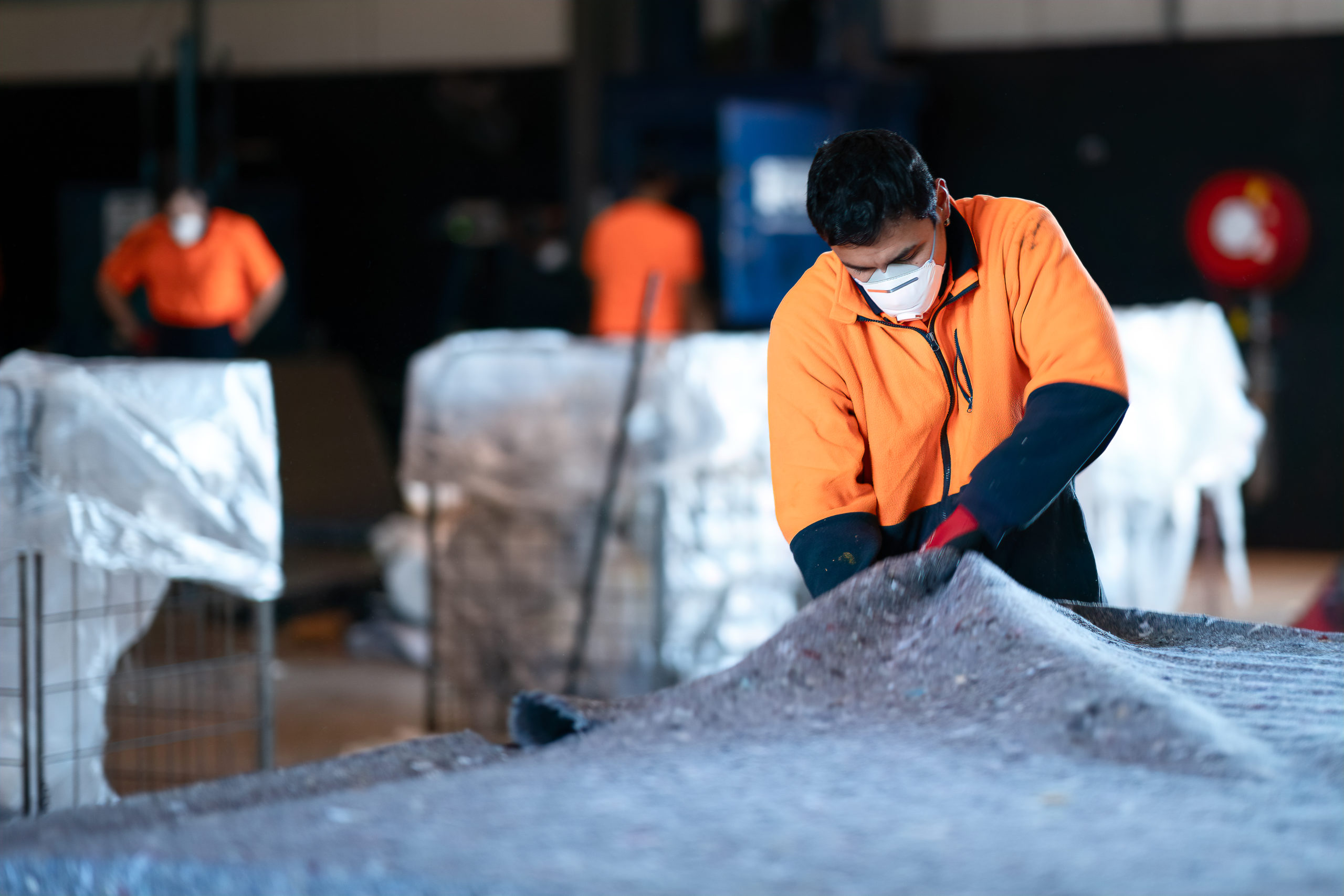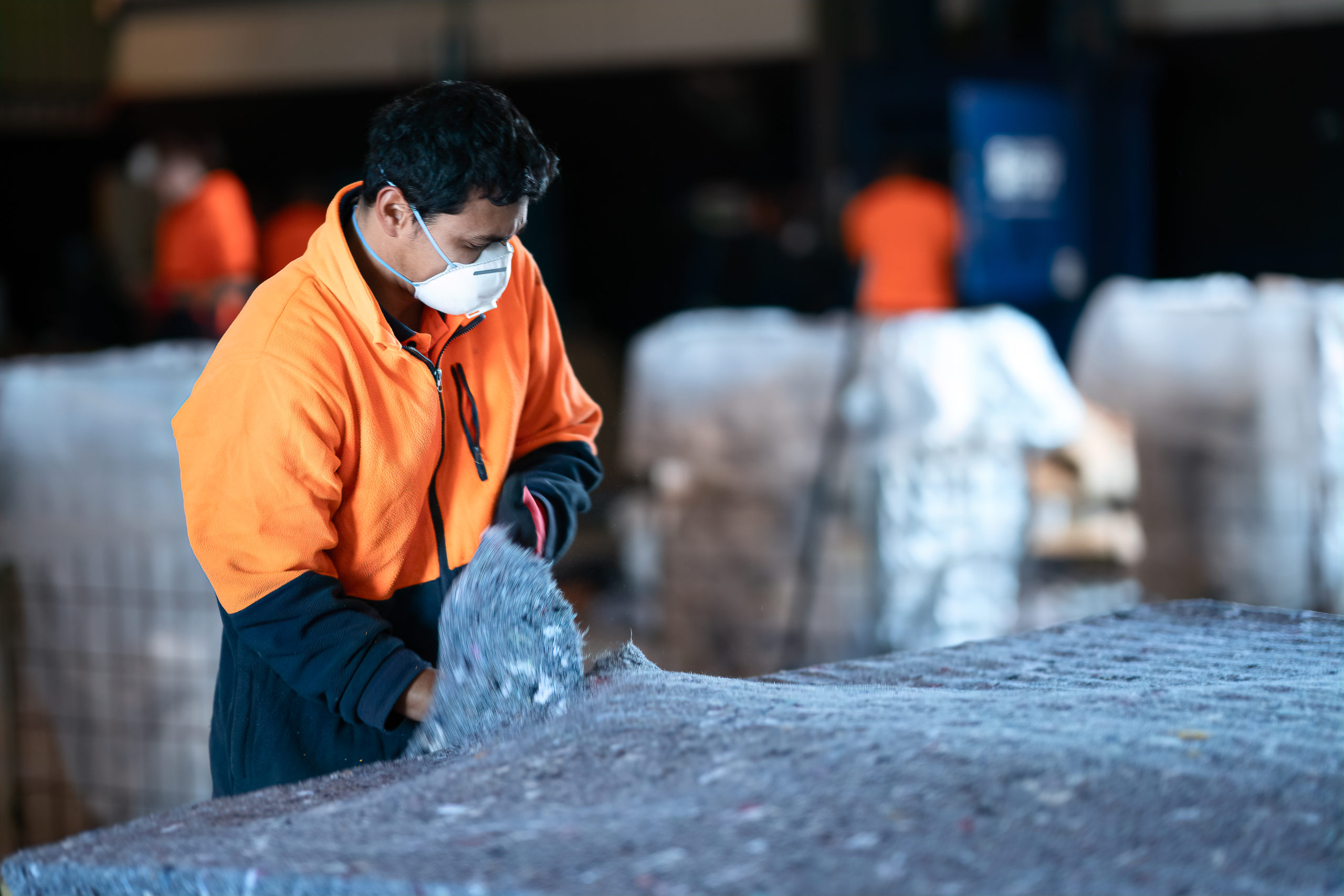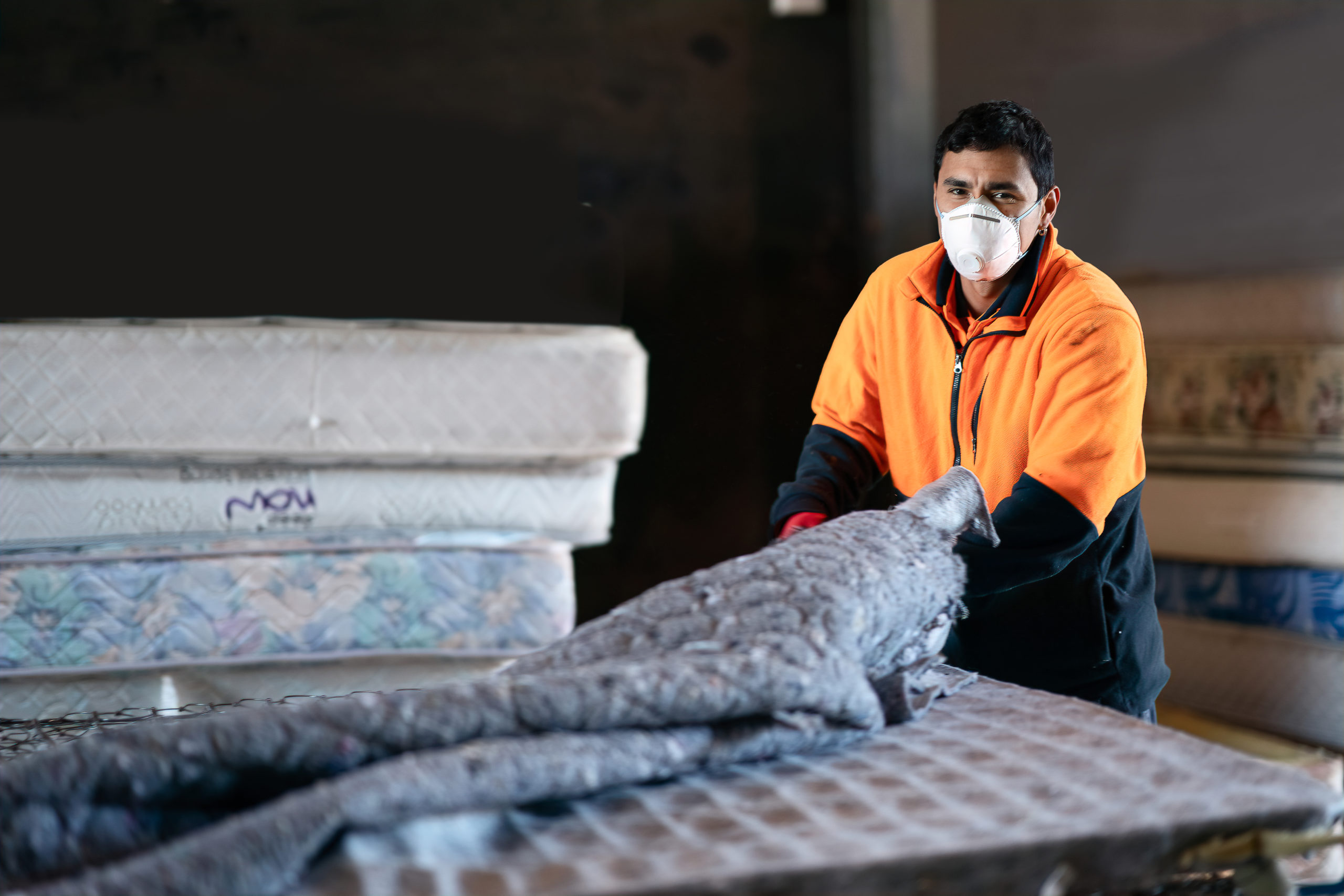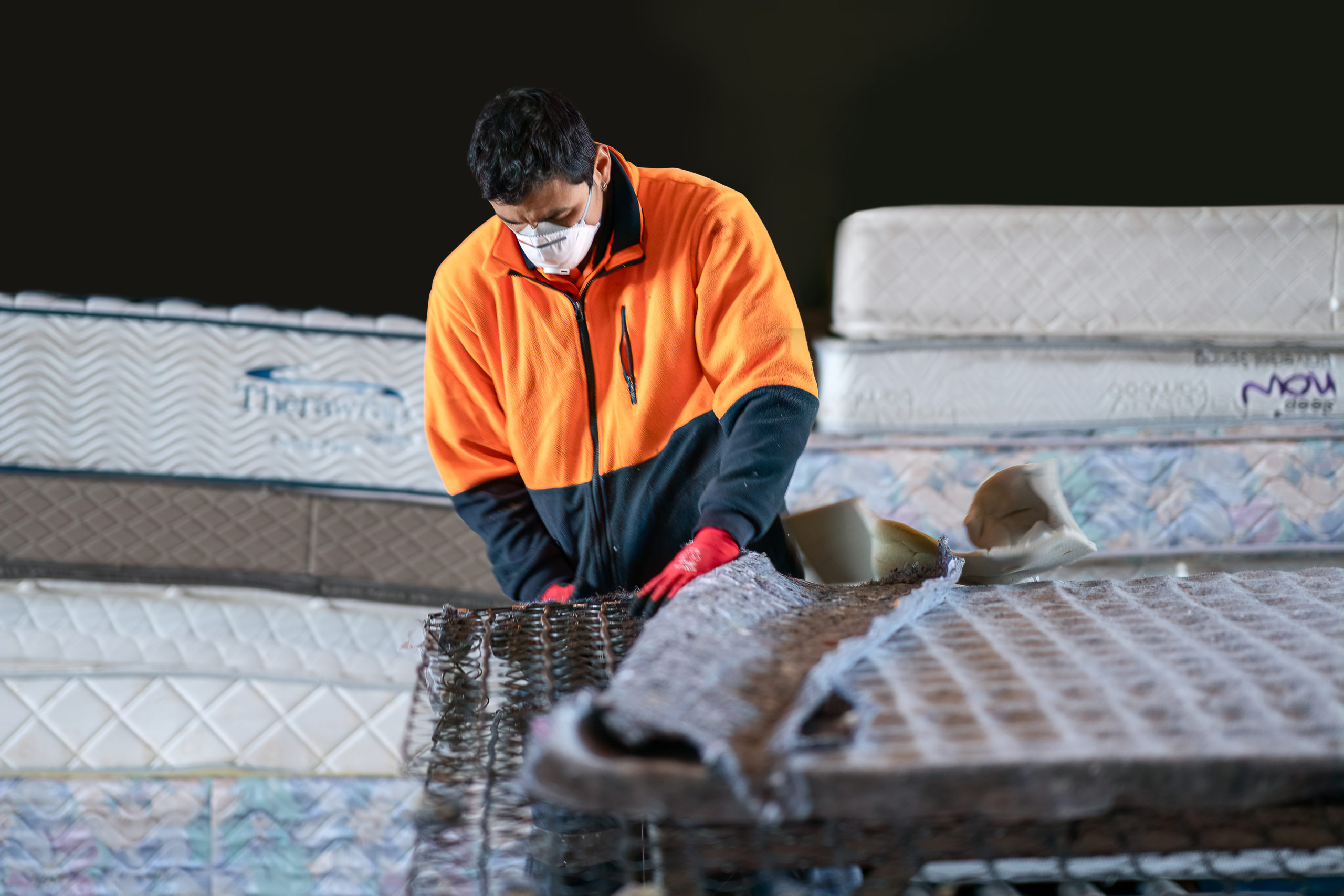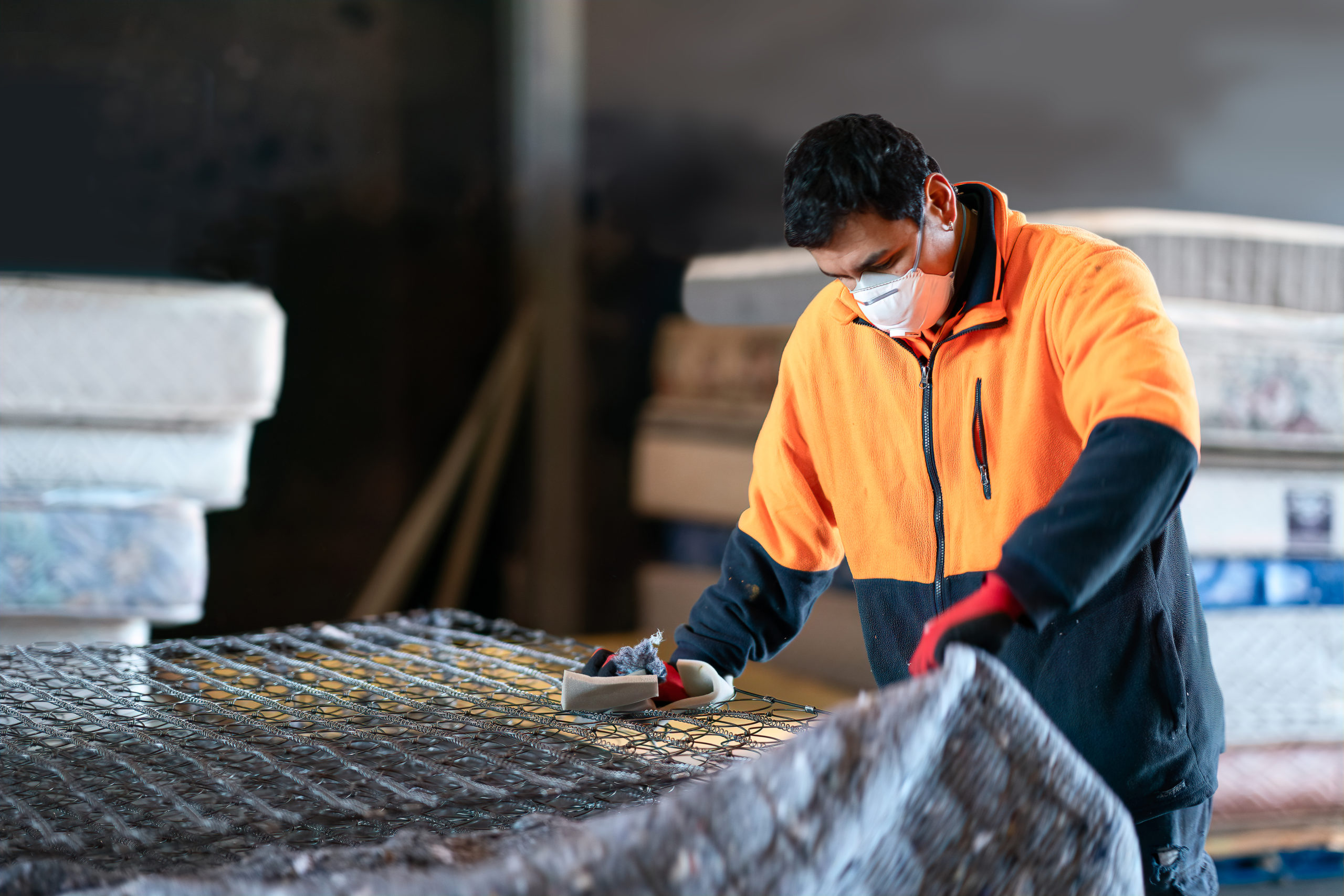Keeping waste out of landfill
and creating jobs for people who need them most
Why is recycling your mattress so important?
An incredible 1.8 million mattresses are thrown away each year in Australia, stretching from Darwin to the tip of Tasmania when laid end-to-end.
740,000 of these mattresses are sent to landfill, taking up huge amounts of limited landfill space and contributing significantly to environmental pollution. Meanwhile, the valuable resources contained within them – like steel and foam – are wasted.
Recycling all of Australia’s old mattresses instead of sending them to landfill is the solution.
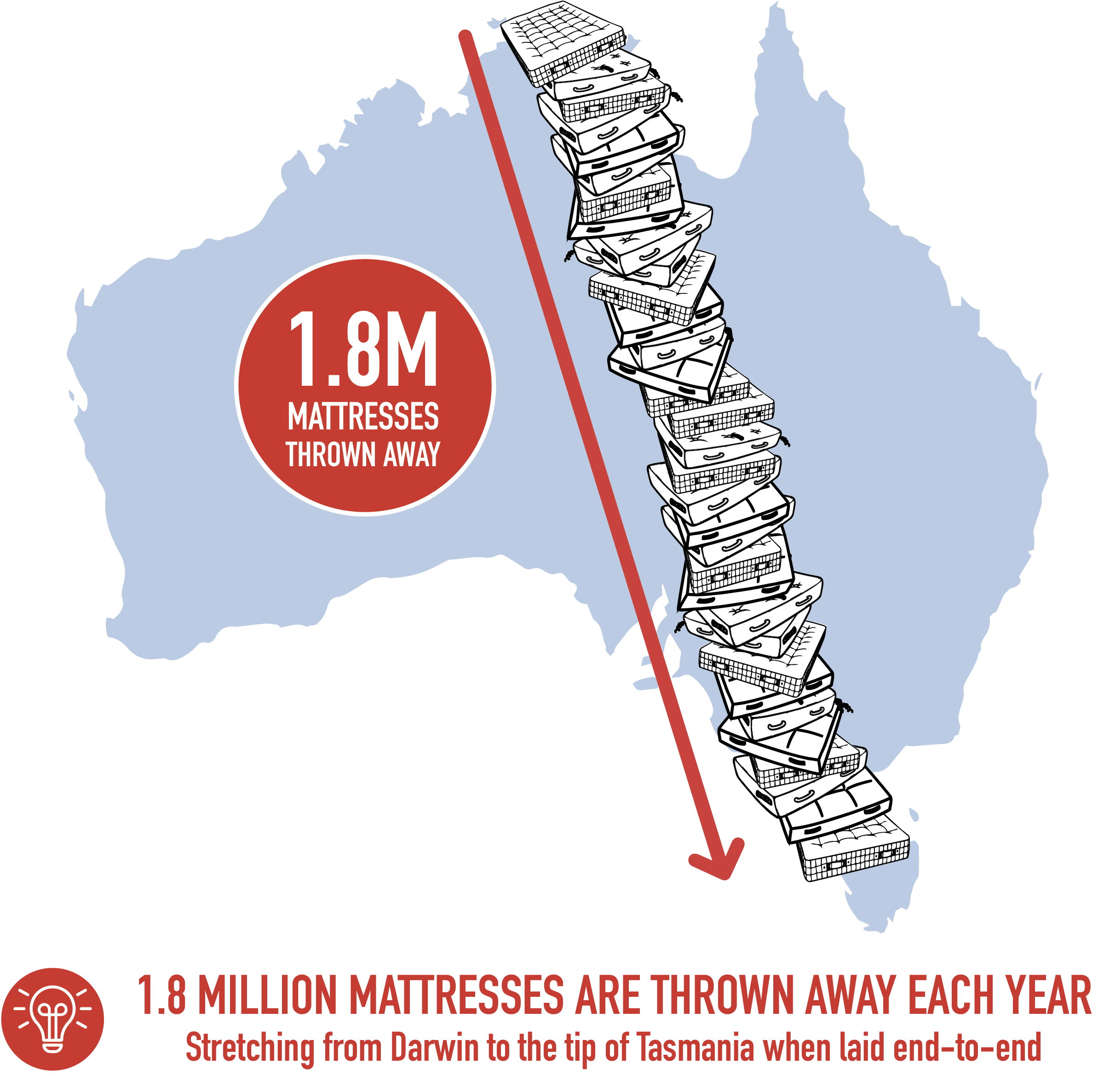
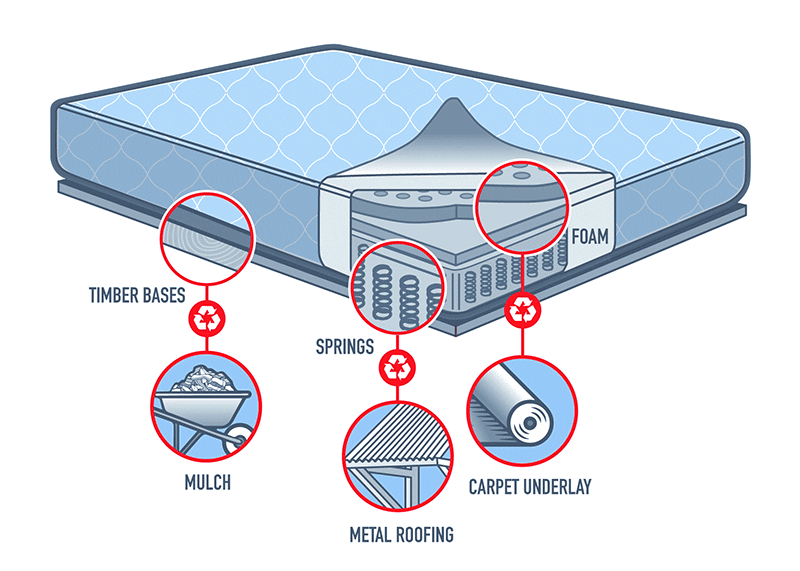
Why choose Soft Landing?
Why choose Soft Landing?
75% recycling target
We recover up to 75% of all mattress components (the current industry maximum).
Materials recycled
We send steel to scrap metal recyclers, foam to carpet-underlay manufacturers,
and bed bases to local industry (where there is a market) for mulch.
STEEL SPRINGS
Steel springs enter the scrap steel market for recycling into new steel.
FOAM
Foam is recycled and can be used to create new products, like carpet underlay.
TIMBER & HUSK
Timber is diverted from landfill through multiple recycling streams.
TEXTILES
R&D, end use products such as acoustic panelling
Our impact
Last financial year we recycled:
How we recycle
Our manual mattress dismantling method prioritises environmental outcomes.
It’s the ABSC’s preferred method of recycling, as it maximises recovery of sought-after resources used within mattresses. It involves careful separation and recovery of valuable materials, such as steel and foam, to prevent them from becoming waste.
We’re proud to say that through our manual method, we attain the current industry maximum for mattress resource recovery (up to 75% of all mattress components).
ILIESA LESIDAVUILEVU, SOFT LANDING SMITHFIELD
“Back home we don’t see these kinds of jobs in recycling. Coming here it was eye-opening to see Soft Landing recycling so much.”

Community Resources
JOBS THAT CARE FOR PEOPLE AND PLANET
Soft Landing is part of Community Resources, a national not-for-profit that runs some of the largest social enterprises in Australia and delivers a range of community services, employing 786 people last year, 67% of them experiencing barriers to employment.



